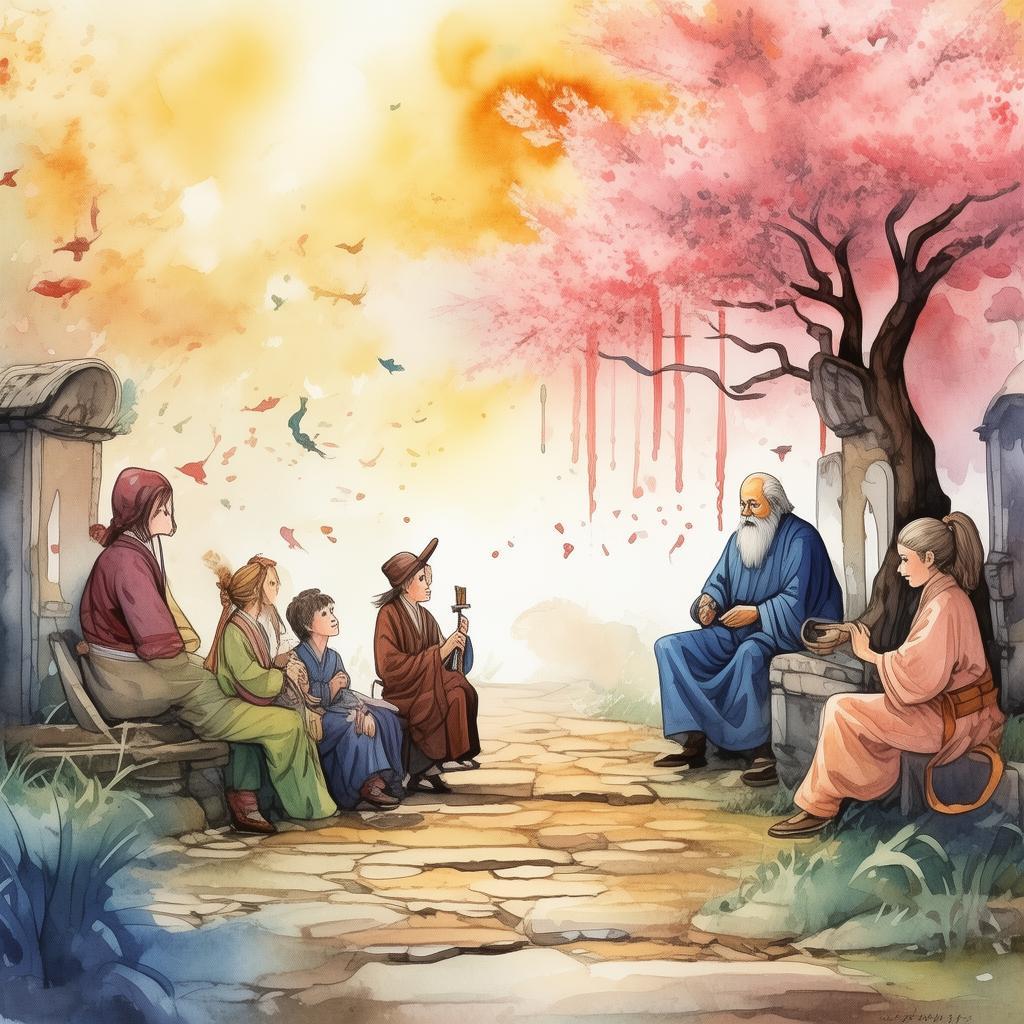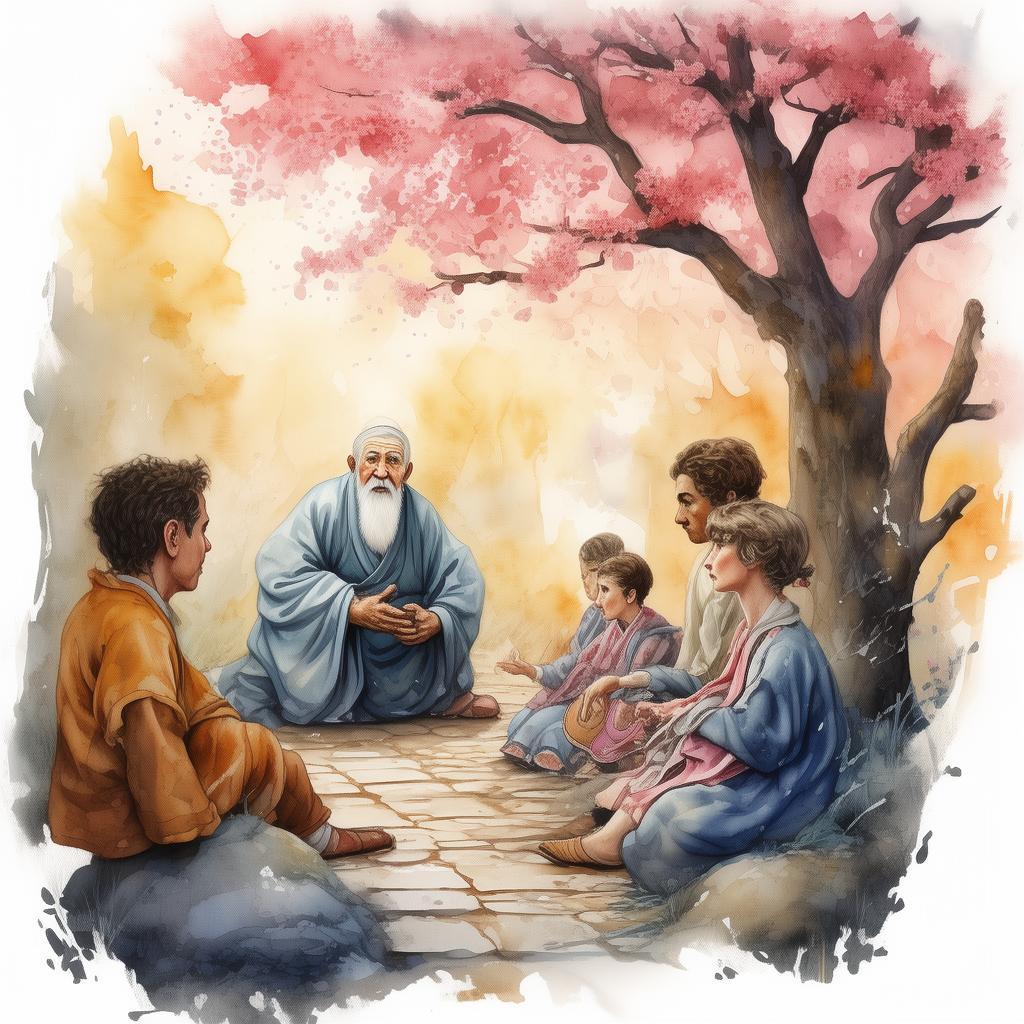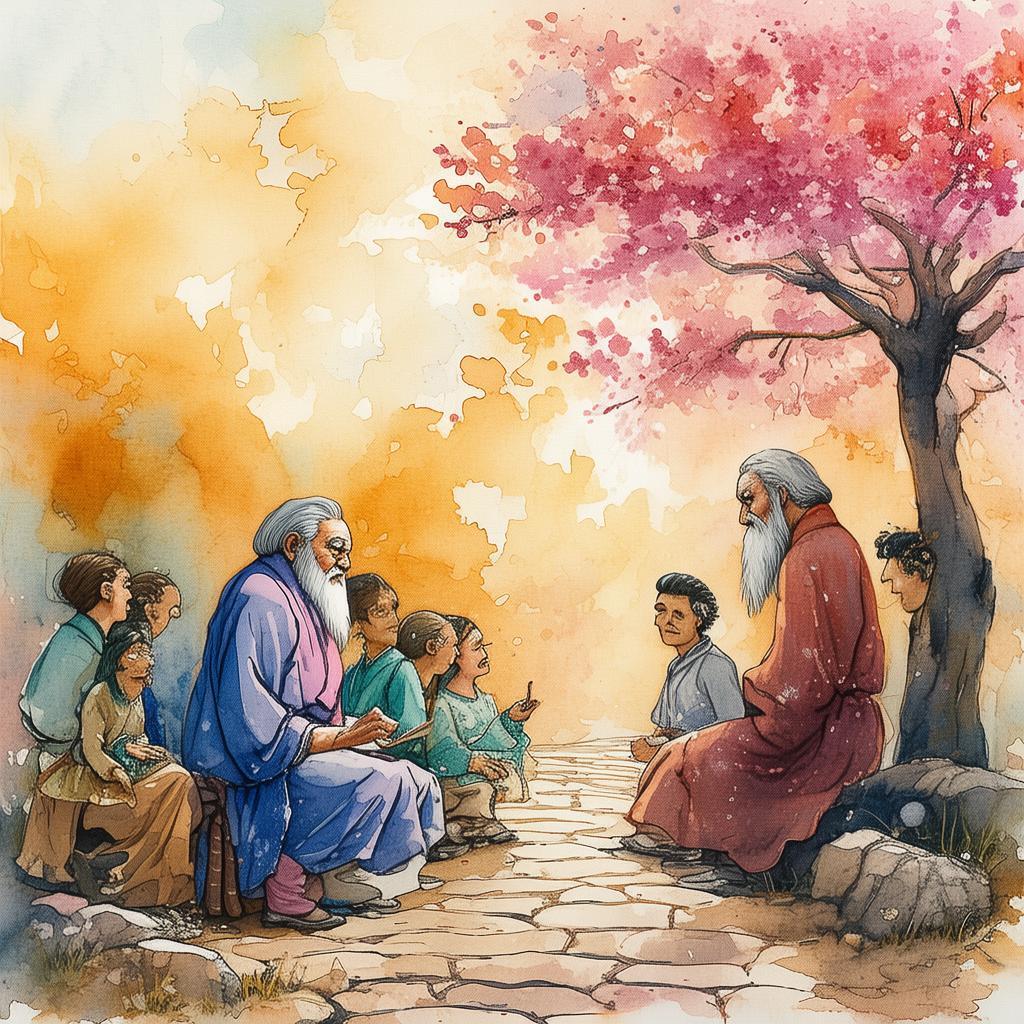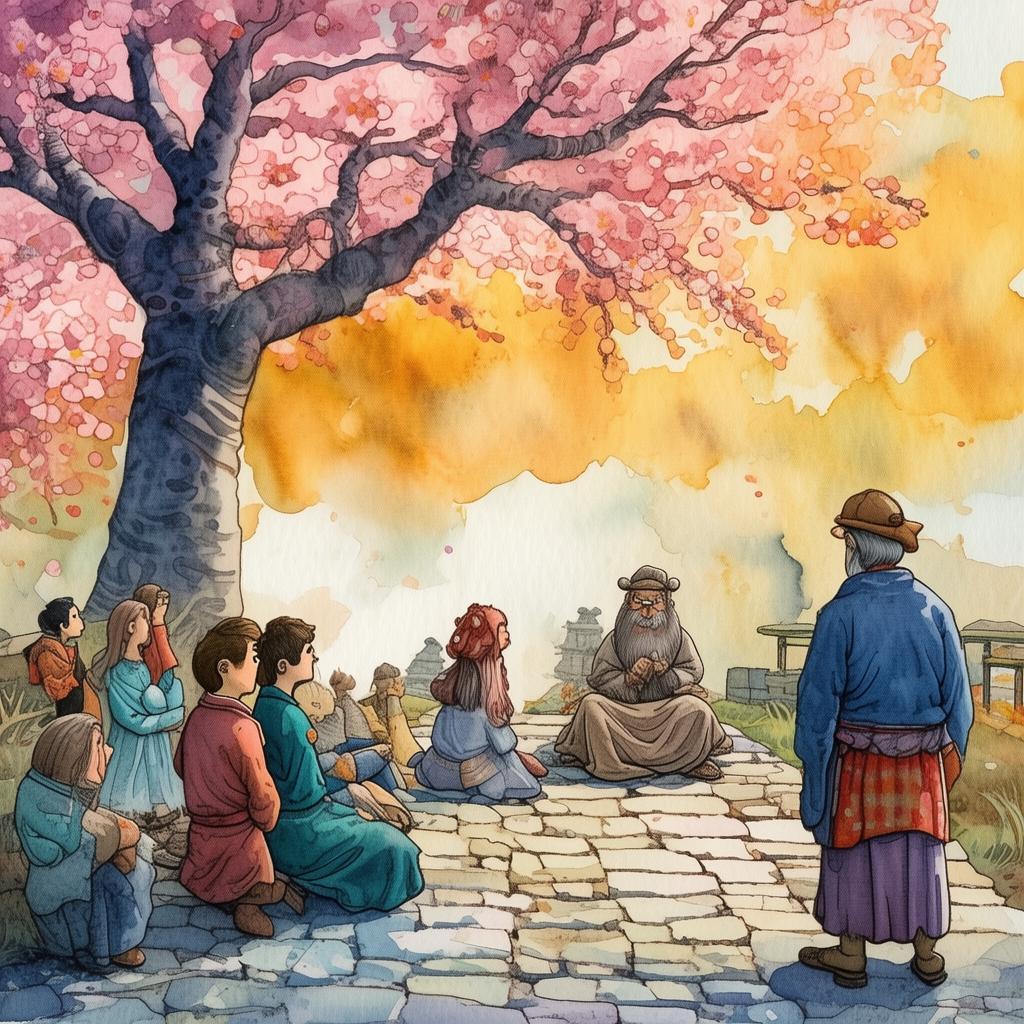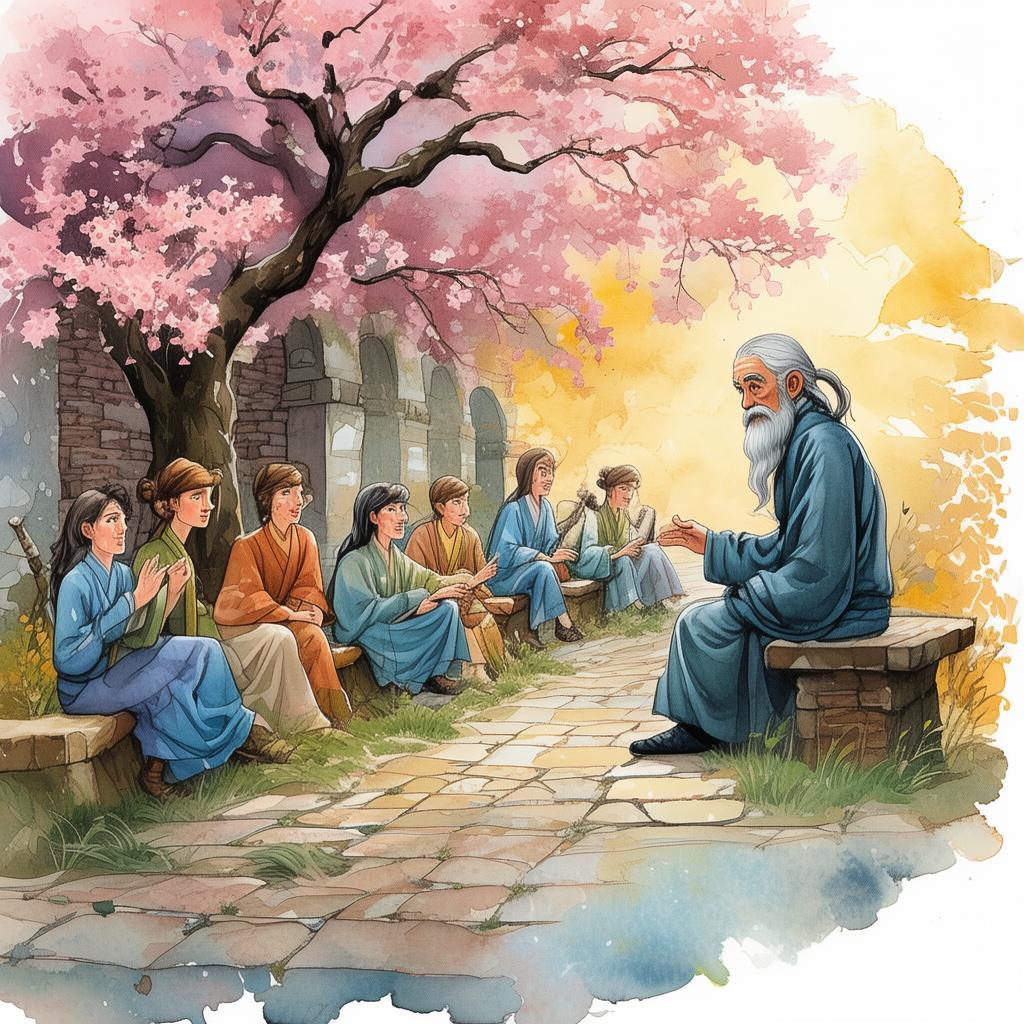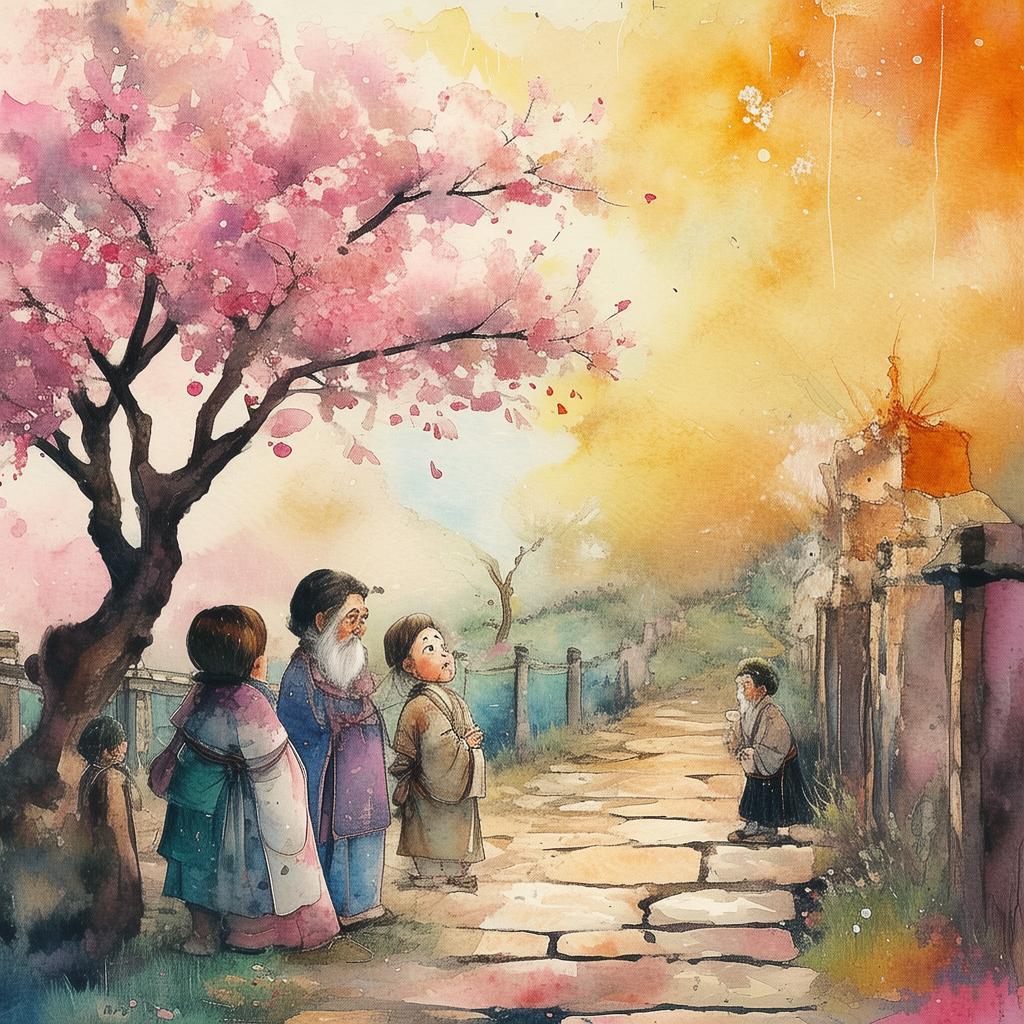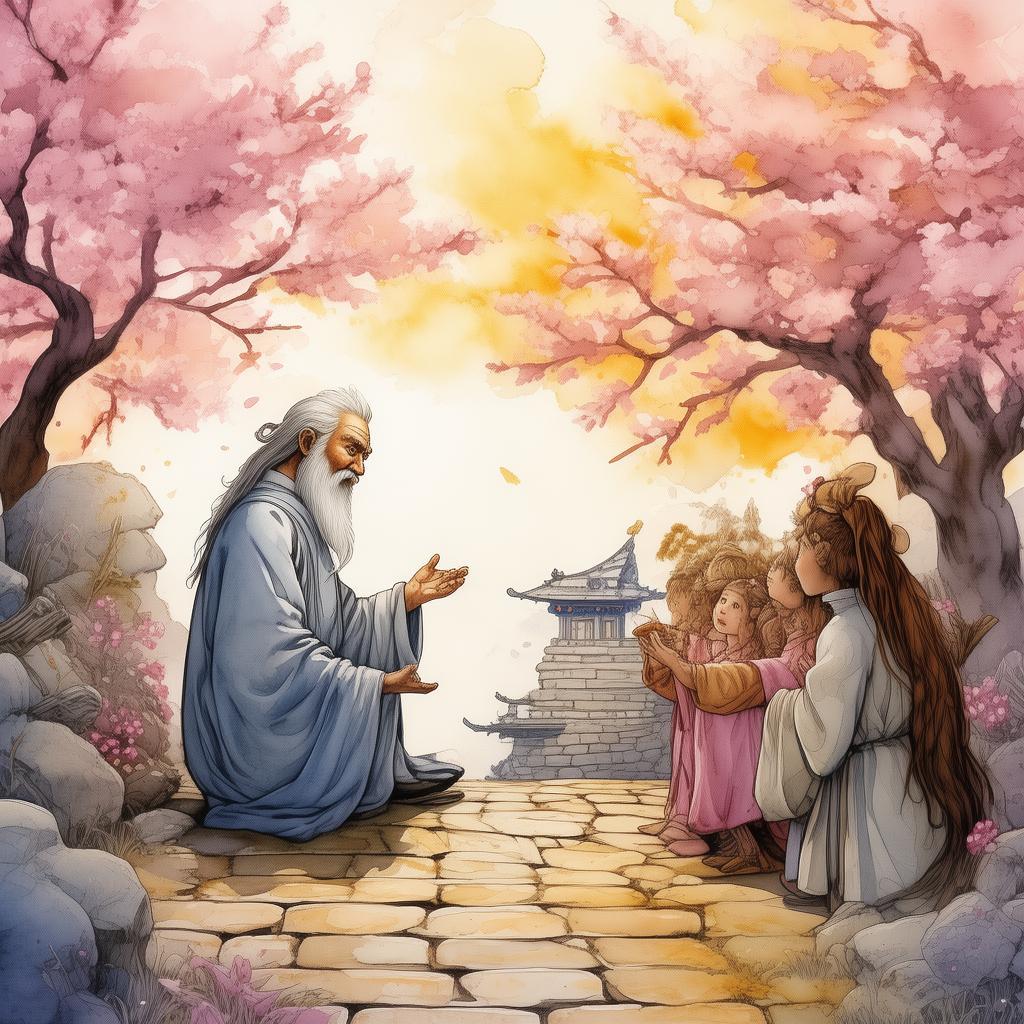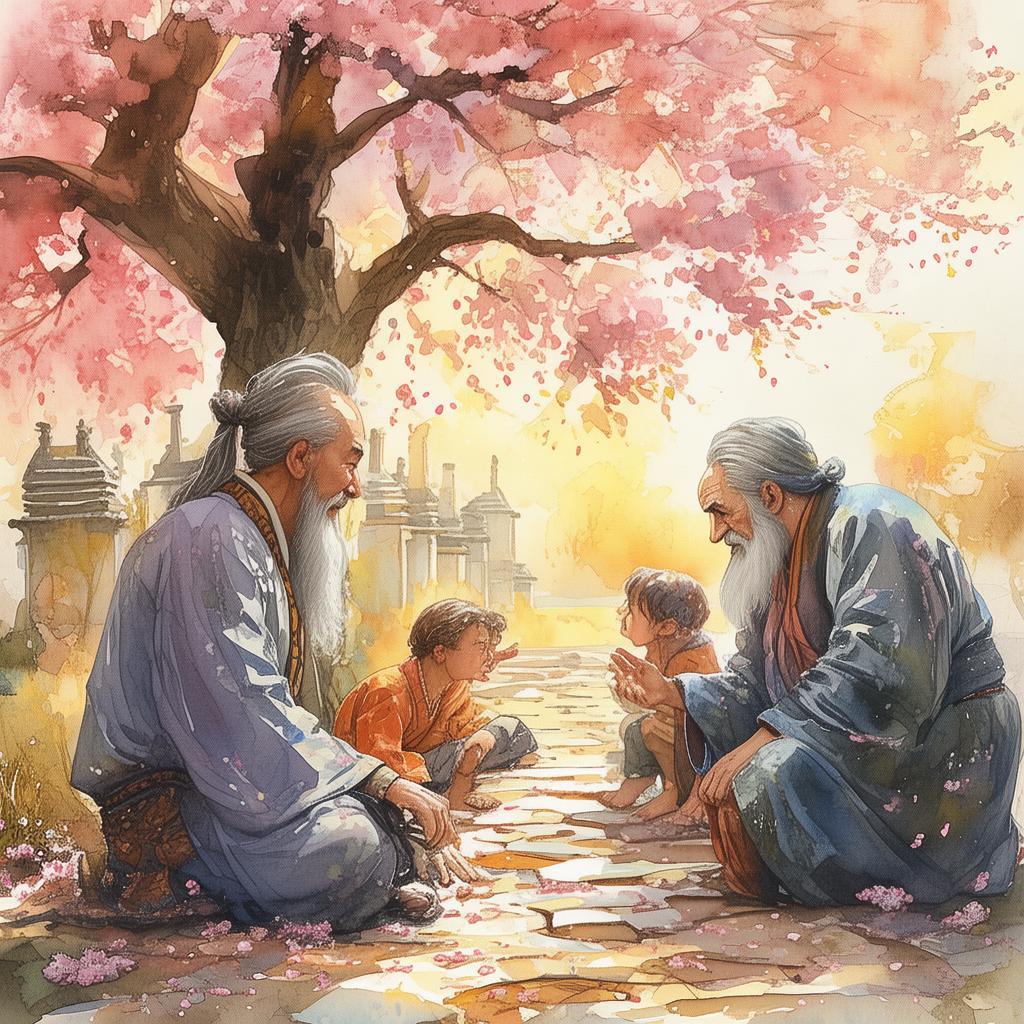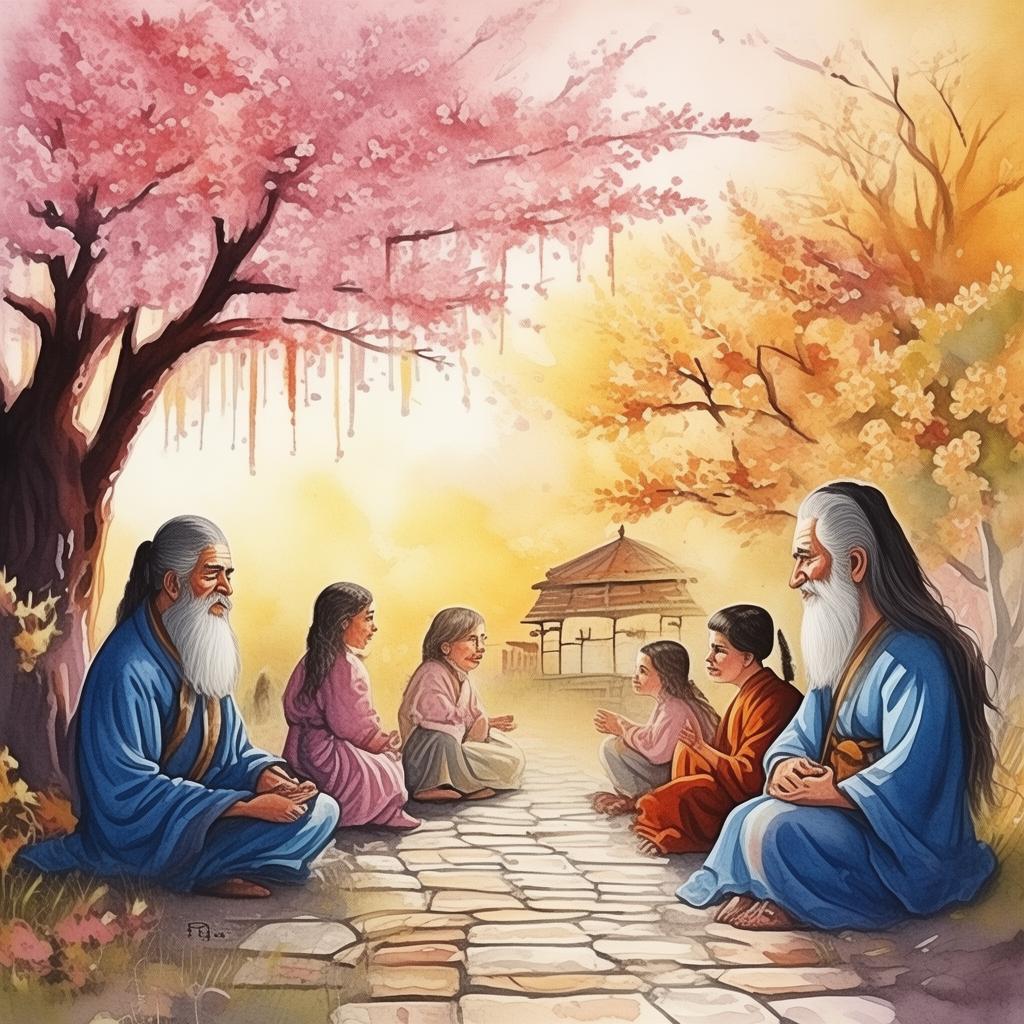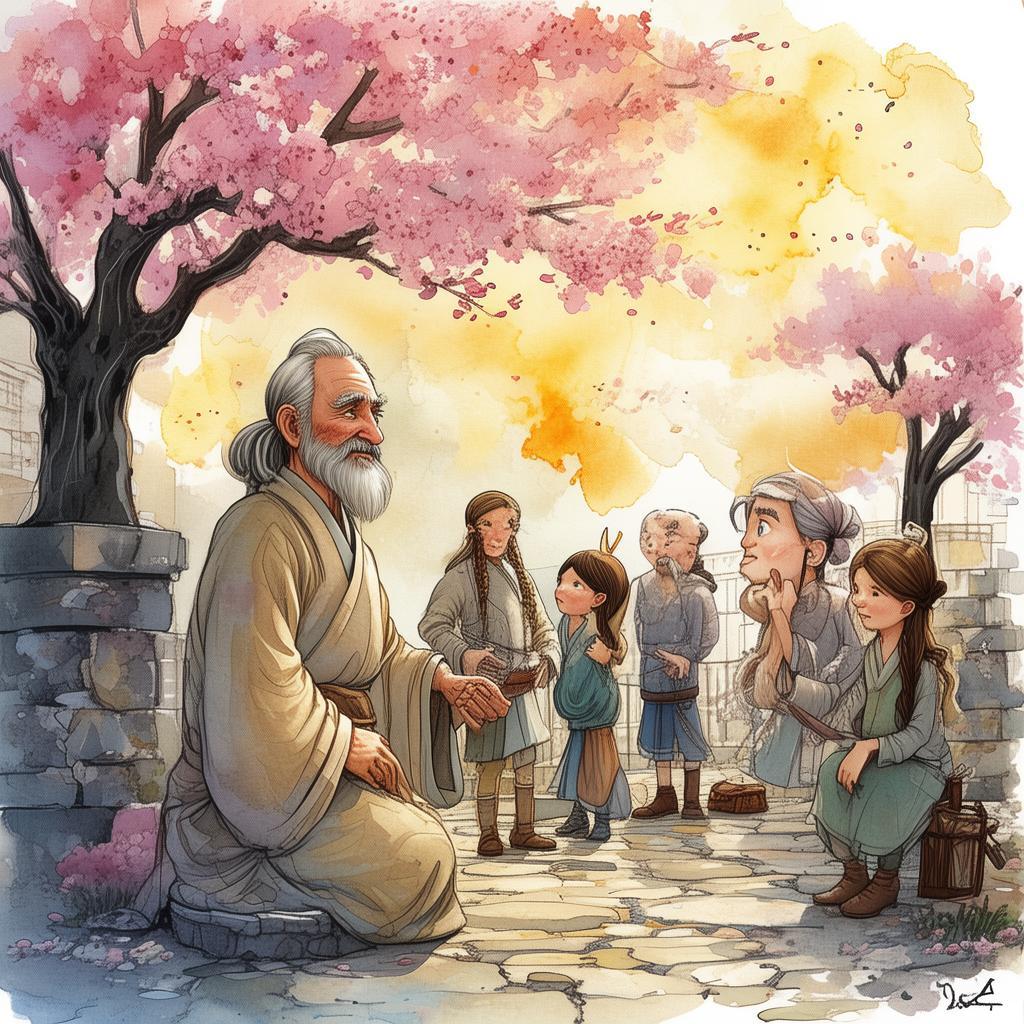The Heart's Resurrection: A Servant's Revolution
In a small, forgotten village nestled between rolling hills and whispering rivers, there lived a servant named Ming. Ming was not born into nobility or wealth; he was the son of a poor farmer, whose hands were calloused from the toil of the earth. Yet, in the heart of Ming, there burned a flame of ambition and a desire for more than the meager existence his circumstances dictated.
The village was governed by a cruel and greedy magistrate, Lord Feng. Lord Feng's heart was as hard as the rock he built his castle upon, and his rule was marked by fear and oppression. The villagers lived in constant dread, their spirits crushed by the weight of the taxes and the arbitrary demands of Lord Feng.
Ming, however, was not content to remain a victim of his circumstances. He had heard the whispers of the revolution that was brewing in the hearts of the oppressed. A revolution not of swords or banners, but of the heart—a revolution that would change the very essence of power and authority.
Every morning, Ming rose before the sun to toil in the fields, his muscles aching with the work. But at night, he would retreat to his modest home and pour over ancient texts, learning about the great leaders and the wisdom of the ages. He knew that the revolution he sought was not a mere upheaval of the political order but a profound transformation of the spirit.
One day, as Ming was returning from the fields, he encountered a woman in a state of despair. Her name was Mei, and she was the wife of a man who had been falsely accused of theft by Lord Feng. Mei had come to beg for help, her eyes filled with a mix of hope and sorrow.
Ming listened to her tale, his heart heavy with empathy. He knew that he could not change the laws or the whims of the powerful, but he could offer her a listening ear and a kind word. As Mei left, Ming made a silent vow to her that he would do everything in his power to help her husband.
Days turned into weeks, and Ming continued his work, but his thoughts were elsewhere. He began to gather information, to learn about the workings of the village, and to understand the hearts of the people. He knew that a revolution required not just strength but unity, and he was determined to be that unifying force.
One evening, as the village was enveloped in the stillness of night, Ming found himself alone in the marketplace. He took a deep breath and stepped forward, addressing the crowd that had gathered there. Ming spoke of the suffering, of the injustices, and of the possibility of change. He shared his vision of a village where the people would be free to dream and to work, where their children would not inherit the bitterness of their parents.
The crowd was at first silent, their fear a tangible force in the air. But Ming's words were like a seed falling on fertile ground. Slowly, voices began to rise, and the crowd murmured their assent. Ming had lit a spark, and it was catching.
Word of Ming's speech spread like wildfire, and soon the village was abuzz with talk of the servant who dared to challenge the mighty Lord Feng. The revolution was afoot, and Ming was its unlikely leader.
The night of the revolution arrived. The villagers, emboldened by Ming's words, gathered in the marketplace, their eyes gleaming with the fire of hope. Ming stood before them, his voice steady and clear.
"We are no longer slaves to the fear of Lord Feng," he declared. "We are free people with free will and free hearts. Tonight, we begin the revolution of our own destiny."
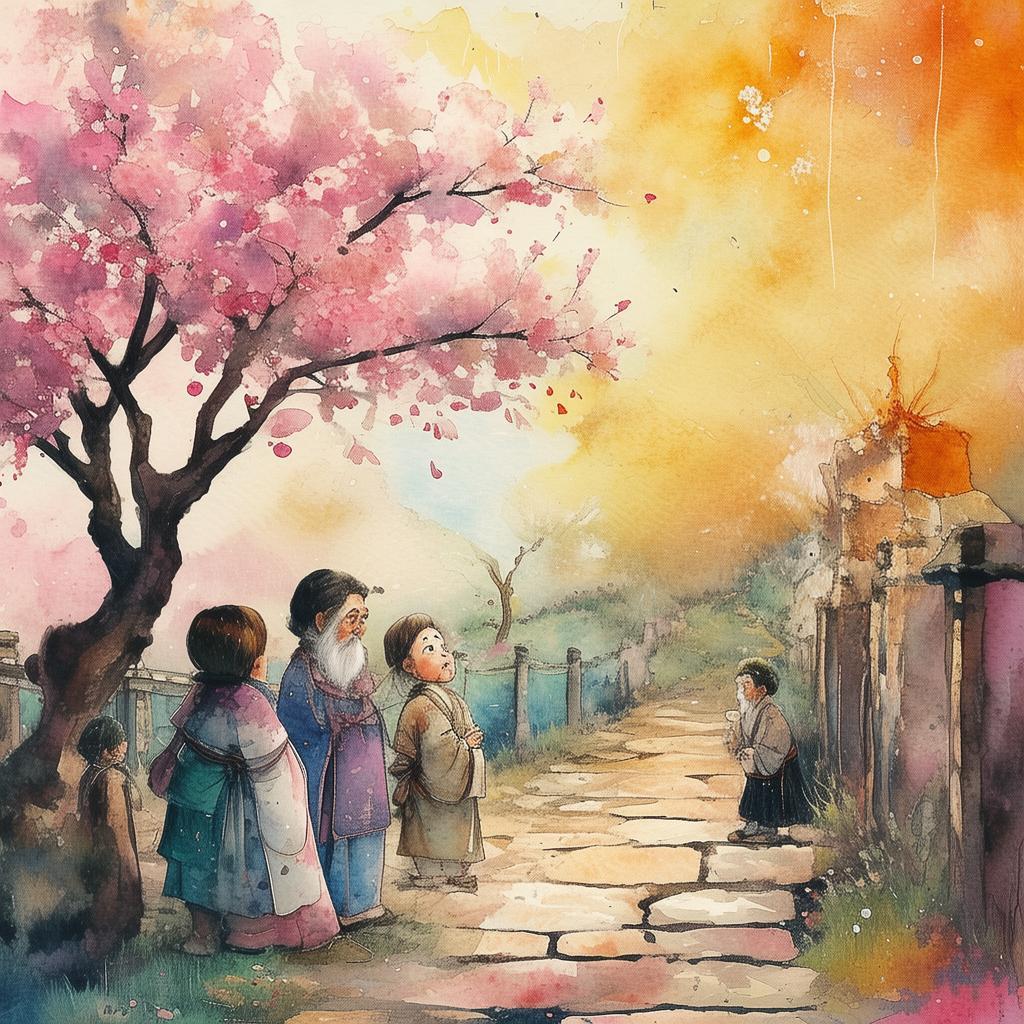
With that, the crowd surged forward, not with weapons but with determination and the will to change. They approached the castle, their hearts beating with a rhythm of rebellion.
Inside the castle, Lord Feng was a picture of shock and fury. He had never expected that the humble servant Ming would dare to rise against him. As the villagers flooded into the castle, Lord Feng tried to gather his guards, but it was too late. The revolution was unstoppable.
Ming stood in the center of the castle, his heart pounding with a mix of fear and excitement. He faced Lord Feng, who was now reduced to a mere man, stripped of his power and his title.
"You have wronged us for far too long," Ming said, his voice firm. "Today, we take back our lives and our freedom."
With those words, Ming reached out and touched the heart of Lord Feng, who had been the symbol of tyranny and oppression. In that moment, Ming felt a shift within him, a transformation that went beyond the political revolution. He had become the vessel of a new era, a leader not by force but by the power of his heart.
The revolution was a success. Lord Feng was overthrown, and a new council was established, chosen by the people. Ming was not a leader in name only but a leader in spirit and action. He worked tirelessly to rebuild the village, to heal the wounds of the past, and to ensure that the future would be bright and free.
And so, the tale of Ming, the humble servant, spread far and wide, a testament to the power of the heart and the revolution of one's own destiny. For in the end, it was not the sword that won the day but the courage to believe in a better future.
✨ Original Statement ✨
All articles published on this website (including but not limited to text, images, videos, and other content) are original or authorized for reposting and are protected by relevant laws. Without the explicit written permission of this website, no individual or organization may copy, modify, repost, or use the content for commercial purposes.
If you need to quote or cooperate, please contact this site for authorization. We reserve the right to pursue legal responsibility for any unauthorized use.
Hereby declared.
